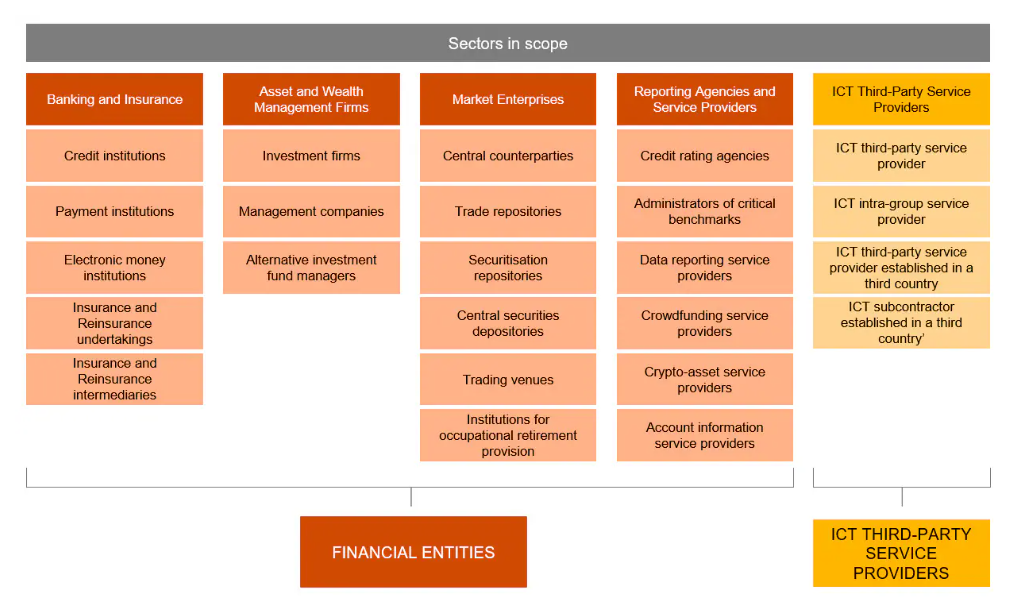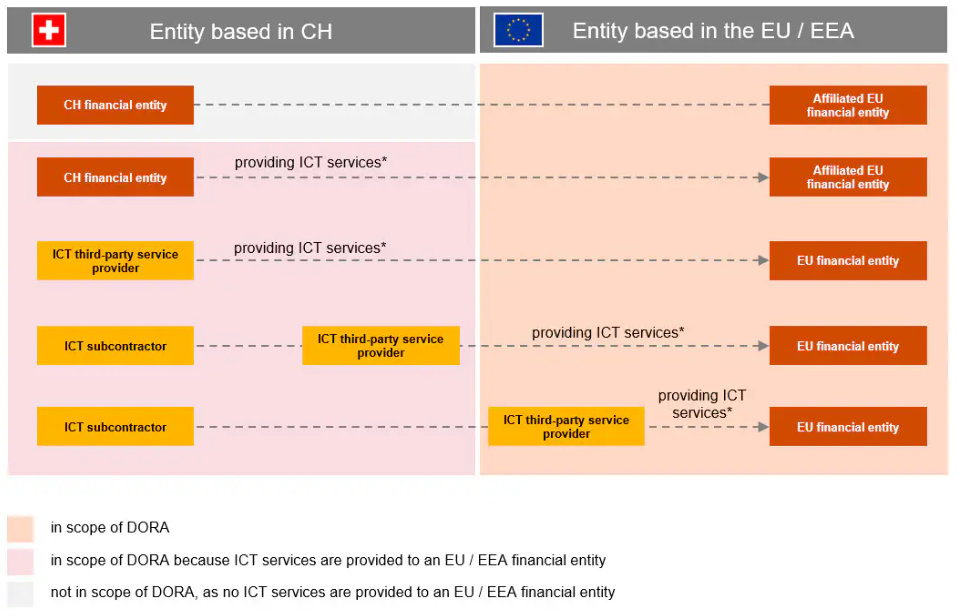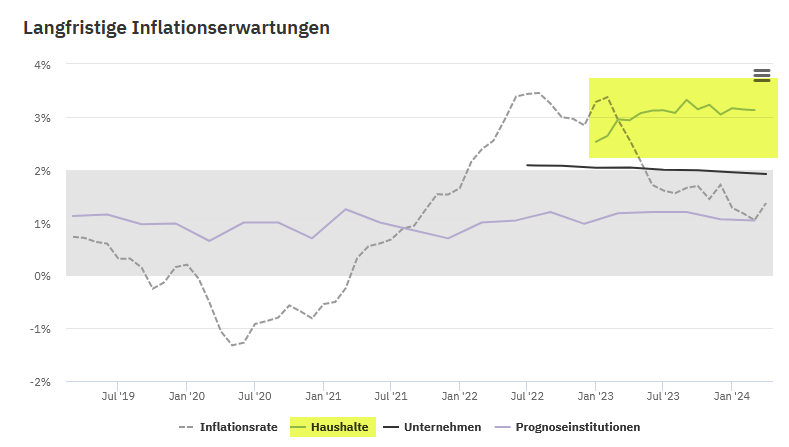TOMATO CATCH-UP - Newsletter Issue 268 - Juni 2024
Your monthly resource on working capital, process optimization, and issues related to the world of corporate treasurers, IT professionals, and bankers!
This newsletter is bilingual, English or German, depending on the source.
Introduction
In the summer months, we tend to pay less attention to news on important things such as the state of the economy for example, especially since things are changing so quickly. Follow Deloitte's Weekly global economic update, in which the company's team of economists analyzes global news and trends. It's a great way to stay informed no matter where you're traveling this summer.
This month’s Catch-Up includes topics such as Process Optimization, Treasury Vacancies in CH and DE, EU Operational Resilience Act, Switzerland on Global Rankings, ISO IEC 42001 for AI, AI in Sustainable Finance, Supercommunicators, and more.
Remember that for any challenge related to your financial issues, you can ask Martin Schneider for a discussion that will clarify it. Contact Martin via email or call +41 44 814 2001.
- Tomato Prozess Optimierung, Interim und offene Stellen
- EU Operational Resilience Act: Impact on Financial Entities and ICT Service Providers
- Deepfake Scams Targets at Two British Companies
- Switzerland Scores Top in Several Global Rankings
- Should ISO IEC 42001 for AI Be Adopted?
- The Use of AI in Sustainable Finance
- Inflationserwartungen in privaten Haushalten sind anders
- Book Tip - Supercommunicators: How to Unlock the Secret Language of Connection
- Termine & Events
- From the Desk of Tomato
1. Tomato Prozess Optimierung, Interim und offene Stellen
Warum ziehen wir bei Tomato im Allgemeinen der Prozess - Optimierung gegenüber einem Interim vor?
Seit 30 Jahren ist es meine Bestimmung Menschen voranzubringen, neue interessante Arbeitsplätze kreieren und langweilige, zeitraubende Arbeitsschritte wenn immer möglich mit vorhandenen Systemen und Techniken zu optimieren. Gemeinsam mit den betroffenen Mitarbeitern neue Schnittstellen erdenken und einbauen.
Wir sind der absoluten Überzeugung, nach einem erfüllten Arbeitstag sind Ihre Familie Freunde, Ihre Freizeit abends wichtiger, als z.B. Excel Tabellen erstellen, exportieren, importieren und/oder diese finetunen.
Dennoch: Für Kollegen und Freunde ist es uns eine Ehre als Interim zu arbeiten, den Arbeitsplatz zu sichern und fortzuführen.
Aus dem Tomato Netzwerk ergeben sich zwei interessante Treasury Herausforderungen:
- in Nord-Deutschland im Raum Raum Münster Osnabrück
- in der Schweiz in Olten
Ihr Interesse besprechen Sie mit Martin Schneider
Die Treasury Stelle in Meran Südtirol ist wieder besetzt und operativ seit 1. Mai: Danke für Ihre Fragen, die mit dem Tomato-Januar-Newsletter-Link entstanden
2. EU Operational Resilience Act: Impact on Financial Entities and ICT Service Providers
The PwC article DORA and its impact on Swiss financial entities and ICT service providers explains the background to this legislation and suggests that Swiss entities need to act quickly to determine whether they fall within the scope of DORA, based on the broad range of financial markets activities included and whether those take place within EU jurisdictions.
The EU’s Digital Operational Resilience Act (DORA) aims to ensure the harmonisation of security and resilience practices across companies operating in the EU. The scope is to help mitigate the risks of rapid digitalisation and growing dependencies within the financial sector.
DORA entered into force on 16 January 2023, with an implementation period of two years; financial entities will be expected to comply by early 2025.
The regulatory standards have two main objectives:
- Build, assure and review the operational integrity of the service and operating model to ensure the continued provision of (the quality of) the financial services
- Limit the risk of contagion within the EU financial system by prescribing a harmonised minimum standard of digital operational resilience
Check the sectors in scope in the image below for improved picture click the Pwc Link below.

Scenarios where a Swiss entity falls within the scope of DORA

Read more in this PwC blog.
3. Deepfake Scams Targets at Two British Companies
One case is in English and the second one in German.
An intricate deepfake scheme including an AI voice clone was directed against the president of the largest advertising group in the world. The Guardian reported that WPP’s CEO Mark Read was the target of an elaborate deepfake scam that involved an artificial intelligence voice clone. He detailed the attempted fraud to leadership and warned colleagues to be on the lookout for calls claiming to come from senior management.
Fraudsters set up a Microsoft Teams meeting that looked like Read and another top WPP executive using a WhatsApp account that was made using a publicly available image of the author. Fortunately, the deep fake attempt was not successful.
The attempted WPP scam used generative AI for voice cloning, but also less sophisticated methods, such as using a readily available image as a contact display photo. The attack serves as an example of the wide range of instruments scammers can now use to impersonate executives and mimic official company communications.
Details in The Guardian
Ziehen Sie Deutsch vor?
In einem Bericht DerTreasurer: Durch ein falsches CFO-Video unterliegen Mitarbeiter des Arup Konzern in Hongkong der Fälschung eines Videos und bezahlen den Betrügern nennenswerte Beträge.
Tomato Martin Schneider: Was können Sie tun?
- Einrichten zentraler Treasury-Zahlungshubs mit weiterhin lokaler Freigabe sind den manuellen e-bankings zu bevorzugen (Beispiel Darstellung Slide 5-7 auf Tomato Site Fachbeiträge Dezentrale Payment Factory)
- Vermeiden Sie Einzelzahlungen für Lieferanten. Im ERP werden üblicherweise Lieferanten im 4-Augen-Prinzip hinterlegt. So wird im Voraus ein fake/unbekannter Lieferant enttarnt.
- GroupTreasury zeigt und schult insbesondere die peripheren Mitarbeiter in den Tochtergesellschaften
Weitere Details bei DerTreasurer und in Financial Times
4. Switzerland Scores Top in Several Global Rankings
- The Global Talent Competitiveness Index 2023
The report is a comprehensive annual benchmarking report that measures how countries and cities grow, attract and retain talent. The top 10 countries are Switzerland in place 1 followed by Singapore, U.S. Denmark, Netherlands, Finland, Norway, Australia, Sweden and the U.K. - World Talent Ranking
For the 10th year running, Switzerland has topped a 64-strong list of economies spread over eight regions. Determining factors include quality of life, statutory minimum wage and primary and secondary education. Luxembourg was second, Iceland third, followed by Belgium, The Netherlands, Finland, Denmark, Singapore, Austria and Sweden. - The 2023 Innovation Index by World Intellectual Property Organization (WIPO)
The Innovation Index ranks world economies according to their innovation capabilities. Consisting of roughly 80 indicators, grouped into innovation inputs and outputs, Switzerland rank first among 132 economies followed by Sweden, the U.S., the United Kingdom and Singapore. Switzerland specific details…
5. Should ISO IEC 42001 for AI Be Adopted?
A report by KPMG discusses the benefits for companies of adoption Artificial Intelligence ISO/IEC 42001.
Compliance with ISO/IEC 42001 requirements can bring several benefits to companies:
- More rigorous and efficient risk management, which mitigates potential risks. This includes addressing AI-specific risks, such as treating individuals unfairly, making incorrect decisions based on inaccurate information, and other challenges unique to the AI landscape.
- Increasing trust in the products a company develops, crucial when selling AI products to third parties. It's equally important to manage the risks associated with using third-party AI products, ensuring a comprehensive approach to trust and reliability in the broader AI ecosystem.
- Competitive advantage by instilling confidence in customers and stakeholders; commitment to quality, ethical practices and adherence to industry-recognized benchmarks. This differentiates the organization from its competitors and fosters trust in its products and services.
- It prepares companies for additional regulations that will be introduced in the next years, such as the EU AI Act expected to become effective in early 2024.
Further reading on KPMG blog
6. The Use of AI in Sustainable Finance
KPMG report: Artificial Intelligence (AI) and Sustainable Finance intersect to tackle climate change and social issues, empowering financial institutions and investors with AI-driven solutions for sustainable development and maximizing returns amidst growing urgency. This blog by KPMG lists areas where AI is already being applied today:
- Risk Management and ESG Integration
- Climate Risk Modeling
- Impact Investing
- Sustainable Supply Chain Management
- Identification of greenwashing risks in external communication
Further reading on KPMG blog
7. Inflationserwartungen in privaten Haushalten sind anders
Eine Studie der KOF-Konjunkturforschungsstelle der ETH Zürich liefert Ergebnisse darüber, warum Haushalte die Inflation höher einschätzen als die Konjunkturforschenden. Diese Unterschiede sind für verschiedene Länder und Zeiträume gut dokumentiert:
- Eigener Konsum prägt die Wahrnehmung.
- Kognitive Aspekte wie Erfahrungen oder Erinnerungen.
- Vergangene Preise in der Erinnerung der Konsumenten sind oft tiefer, als sie es tatsächlich waren.
- Menschen bemerken Preissteigerungen mehr als Preissenkungen.
- Wer traditionelle Nachrichten verfolgt, wird in seiner Einschätzung genauer. Jedoch bildet das Weltbild des Bürgers die Basis.
- Die langfristigen Inflationserwartungen der Haushalte sind volatiler als jene der Prognoseinstitute und der Unternehmen.
Mehr auf Die Volkswirtschaft mit Links zu ETH und KOF

Lesebeispiel: Im Juni 2023 betrug die Inflationsrate 1,7 Prozent. Fragte man die Konsumenten im Juni 2023 nach den (kurzfristigen) Inflationserwartungen, betrugen diese im Median 5,1 Prozent. Prognoseinstitute und Unternehmen erwarteten im Juni/Juli 2023 für die kurze Frist hingegen eine Inflationsrate von nur 1,5 bzw. 2 Prozent. Der Median der langfristigen Inflationserwartungen der privaten Haushalte in fünf Jahren lag im Juni 2023 bei rund 3,1 Prozent. Prognoseinstitute und Unternehmen erwarteten hingegen langfristig eine Inflation von 1,2 bzw. 2 Prozent.
In den Tomato News Januar 2023 verlinkten wir Video’s von Hanna Cash für Themen um die Volkswirtschaft. in Deutsch et en Français.
8. Book Tip - Supercommunicators: How to Unlock the Secret Language of Connection
Have you ever encountered a conversation that you felt was effortless? If so, you may have interacted with a supercommunicator - someone who often establishes real connections with people through active listening and conversation. Journalist Charles Duhigg claims that everyone can become a supercommunicator. His most recent book deconstructs the necessary abilities to acquire in order to form deeper bonds with people:
- Identify if the conversation is social, emotional, or practical.
- Show your partner that you are listening attentively by using a method known as "looping for understanding". Repeat in your own words what the other person has said and ask them if you have understood them correctly.
- Ask the appropriate follow-up questions. Super communicators ask ten to twenty times as many follow-up questions as others. Ask "why" if you are unsure.
- Make it your goal to understand the person you are talking to. Your goal should not be to convince, persuade or focus on what you are going to say next.

Link to the book on charlesduhigg.com.
9. Termine & Events
- June 13, 2024: FinCrime & Cybersecurity Summit Europe, Brussels, Belgium
- June 16 – 17, 2024: Payments Leaders’ Summit, Miami, USA
- June 19 – 20, 2024: Banking Transformation Summit, London, UK
- June 20, 2024: World Finance Forum, Amsterdam, The Netherlands
- June 24 – 25, 2024: Digital Banking, Florida, USA
- July 1 – 3, 2024: Point Zero Forum, Zurich, Switzerland
- July 8 – 9, 2024: Fintech World Forum 2024, London, UK
- September 5, 2024: FinCrime & Cybersecurity Summit, Frankfurt, Germany
- September 9 – 11, 2024: Finnovate Fall, New York, USA
- Oct. 2 – 4, 2024: EuroFinance International Treasury Management, Copenhagen, Denmark
- Nov. 10 – 11, 2024: 15th NextGen Payments & RegTech Forum, Austin, Texas, USA
- Nov. 13 – 15, 2024: IACT 2024 Annual Treasury Management Conference, Dublin, Ireland
- Nov. 27 – 28, 2024: Structured Finance in German, physical, ICS trade fair Stuttgart
10. From the Desk of Tomato
Tomato ist seit Jahren in der Region Basel unterwegs. Esra Kummer, unser Teamkollege, war präsent an der zweiten Industrienacht Regio Basel, welche am an einem Freitagabend diesmal dem 19. April stattfand. Rund 14'000 Menschen begeisterte der Anlass. Hier Esra’s Bericht:
Unterschiedlichste Firmen öffneten sich Freitagnacht dem Publikum. Zum Beispiel wurde die moderne Lagerhaltung mittels Roboter eindrucksvoll demonstriert. Roboter übernehmen in modernen Lagern viele Aufgaben, die früher manuell erledigt wurden. Sie sind in der Lage, Waren effizient zu sortieren, zu transportieren und zu lagern. Durch den Einsatz von Sensoren navigieren sie autonom und präzise durch die Lagerhalle. Die Roboter können rund um die Uhr arbeiten. Sie sortieren das Lager für den Arbeitsbeginn dahingehend vor, dass anhand der Bestellungen die Waren schnell griffbereit sind. Moderne Lagerhaltungssysteme sind zudem oft mit intelligenten Softwarelösungen verknüpft, die für eine optimale Bestandsverwaltung sorgen. Mitarbeiter sparen täglich viele Kilometer an Wegen, sie konzentrieren sich nun auf die Abfertigung der Ware.
Sehen Sie hier im kurzen Video, wie die Roboter durch das Lager flitzen (Video auf externer Seite).
Enjoy – Esra and the Tomato Team

